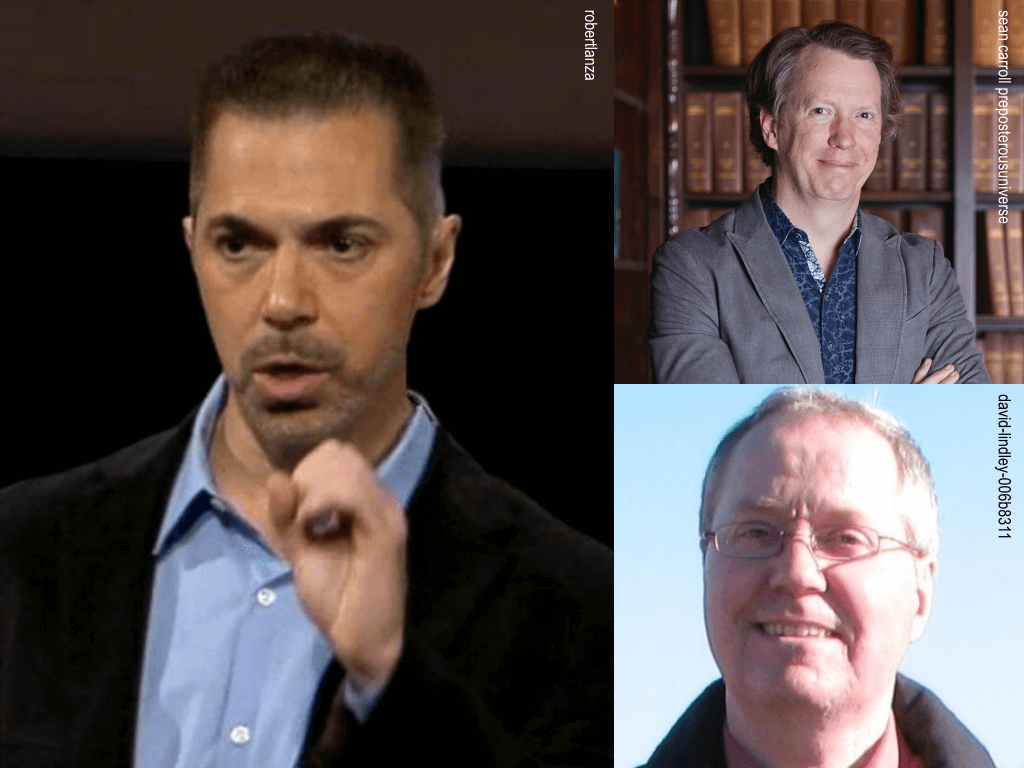Biocentrism is the new talk of the town! But what is it exactly? Well, it is a philosophical concept, deeply rooted in the reverence for all living beings. At its core, biocentrism states that all living creatures have inherent worth and deserve ethical consideration. With roots in the works of eminent philosophers and morality thinkers, this ideology has sparked both intrigue and controversy. Does that mean “biocentrism debunked?”
Let’s unravel the complexities of biocentrism. From the clash of opposing viewpoints to the intricacies of practical application, we’ll navigate the arguments for and against biocentrism’s validity, shedding light on the interplay between humanity, nature, and the very essence of existence. Are you ready?
- What is Biocentrism?
- Notable Figures in the Biocentrism Debate
- The Debate on Biocentrism
- Scientific Evidence and Biocentrism
- Biocentrism in Philosophical and Religious Contexts
- Biocentrism and Contemporary Environmental Movements
- Biocentrism and Technological Advancements
- Has Biocentrism Been Debunked?
- To Wrap it Up…
What is Biocentrism?

Biocentrism is an ethical perspective that revolves around the belief that all living beings possess inherent value and should be respected and protected. It emphasizes the importance of every living organism and their interconnectedness within the ecosystem. The core principle of biocentrism is to recognize and show regard towards the rights and interests of every creature, not just humans. This philosophy advocates for a balanced and sustainable approach to environmental conservation, where the well-being of plants, animals, and ecosystems is taken into account.
Now, while the concept of biocentrism was proposed in 2007 by scientist and stem cell researcher Dr.Robert Lanza, it has deep historical roots. In Buddhism, the first ethical principle is to avoid harming any living being. Saint Francis of Assisi also preached about the importance of including animals and plants in our care. Similarly, certain Native American traditions consider all living things sacred. During the Romantic movement, which took place in the 18th and 19th centuries, people defended the natural world’s intrinsic value against the view of solely treating nature as a means for human purposes in the technological age.
Later, key proponents like Aldo Leopold and Arne Naess shaped the development of ideologies related to biocentrism. Leopold, an American ecologist, promoted the idea of a “land ethic,” urging humans to see themselves as part of the broader community of life. Similarly, Naess, a Norwegian philosopher, introduced the idea of “deep ecology,” emphasizing the intrinsic value of all beings and the connection of life.
Finally, it was Dr. Lanza who fabricated an all-round “Biocentrism Theory” based on Quantum Physics, which says that life is the driving force that shapes the universe, not the other way around. In his view, he emphasizes that biology is more important than physics because a deep understanding of life and consciousness is essential to fully grasp these disciplines. He insists that a comprehensive ‘Theory of Everything’ is only possible when we observe the basic elements of nature — matter, space, and time — from a biocentric point of view. Dr. Lanza first shared these groundbreaking concepts in a notable article published in The American Scholar back in 2007.

Notable Figures in the Biocentrism Debate
In the intriguing biocentrism debate, several notable figures have emerged, both advocating and critiquing the concept. Dr. Robert Lanza argues that life and consciousness are the fundamental aspects of the universe. However, critics like physicist Sean Carroll have offered counterarguments, challenging the claims made by biocentrism proponents. Carroll contends that biocentrism lacks empirical evidence and may not provide a solid scientific foundation.
Furthermore, David Lindley, a theoretical physicist, has voiced out criticism towards Lanza’s essay in The American Scholar, referring to the concept as a “vague, inarticulate metaphor” and questioning its potential for meaningful scientific or philosophical discoveries.
The Debate on Biocentrism

Arguments in Favor of Biocentrism’s Validity
At the heart of biocentrism lies the core idea that life creates reality. According to this philosophy, the physical world exists because it is observed by conscious beings. It draws inspiration from the quantum mechanical concept of the “observer effect,” where observation influences what is being observed. When expanded to the larger universe, biocentrism posits that conscious life plays a vital role in bringing the universe into existence through observation.
Biocentrism advocates argue that ethical considerations should extend beyond humans and encompass all living organisms. It is based on the idea that all life forms deserve moral consideration— from the tiniest microbe to the largest mammal on the planet. From this perspective, the well-being and preservation of biodiversity become paramount.
Biocentrism meaning conveys that humans do not hold superiority over other living creatures but rather exist as an integral part of the intricate web of life. This framework challenges the anthropocentric beliefs that prioritize humans as the center of the universe, urging a more unbiased outlook where every being is regarded as equal. Biocentrism is closely connected to environmentalism, covering both abstract values and practical actions. It views environmental preservation as a moral duty, regardless of its effects on human well-being. Furthermore, it encompasses diverse schools of thought, including Schweitzer’s Reverence for Life ethics, Paul Taylor’s Bio Egalitarianism ethics, and Peter Singer’s Animal Liberation ethics. The ultimate goal of biocentrism is to create a balanced and harmonious relationship between humans and nature.
Dr.Lanza also believes that biocentrism holds valuable insights into mysterious aspects of physics. For instance, it could explain Heisenberg’s Uncertainty Principle, where precise particle velocity measurement affects our certainty about its position. Biocentrism may also shed light on the ‘observer’ effect in the double-slit experiment, where observation impacts electron position.
Critiques of Biocentrism
Biocentrism has faced several critiques, especially from physicists and anthropocentric viewpoints, that prioritize human interests over other living beings. The Biocentrism concept proposed by Dr.Lanza challenges well-established scientific beliefs, particularly Einstein’s General Theory of Relativity, which considers time to be an integral part of the universe. According to Lanza, time and space might be subjective constructs existing solely in our minds, rather than objective elements of the physical world.
This idea is unsettling for both physicists and the general public, as it challenges our understanding of the universe. Dr.Lanza refers to philosophers like Descartes, Kant, Berkeley, and Schopenhauer, who emphasized the significance of consciousness. Kant, for instance, believed that time is a mental construct and exists within our minds, not in the external world. This notion challenges traditional views of space and time as measurable and objective entities in the physical world.
Moreover, critics question the practicality of applying biocentric principles in a world predominantly driven by human needs and economic concerns. Ethical concerns arise regarding the treatment of non-human beings and whether biocentric ethics can adequately address complex moral dilemmas.
Some critics argue that a strict biocentric approach may overlook the greater good for human societies, challenging the utilitarian perspective. The conflict between individual rights and biocentric values also sparks debates on how to balance the well-being of all living beings while considering human rights and responsibilities.
Critics claim that Dr.Lanza is using science superficially to support his mystical ideas. He wraps spiritual notions in scientific language, but scientists remain unconvinced. Additionally, Dr.Lanza hasn’t published this theory in any credible scientific journals. As a result, biocentrism is yet to withstand scientific scrutiny. There are also doubts about its testability and falsifiability, which is crucial for a valid scientific hypothesis.
Scientific Evidence and Biocentrism

Biocentrism is a philosophical and ethical framework rather than a scientifically proven theory in the traditional sense. While there are no scientific studies that directly support biocentrism, some aspects of the framework align with ecological and conservation sciences. These fields emphasize the importance of protecting biodiversity, ecosystems, and the intrinsic value of all living beings.
Biocentrism suggests that space and time are products of the mind. It argues that these concepts are tools our minds use to understand the world, rather than objective realities. However, this idea contradicts scientific observations and well-established theories that explain these phenomena.
For example, take Einstein’s Theory Of Relativity. It’s widely supported by experiments like gravitational lensing and time dilation, confirming our understanding of space and time. Plus, space and time still exist without observers, as proven by cosmic events predating life on Earth.
Critics often challenge biocentrism for its lack of concrete evidence and its departure from proven scientific principles. The debate between biocentrism and anthropocentrism, which places humans at the center of moral consideration, continues among philosophers, environmentalists, and scientists.
However, while biocentrism might not be supported by conventional scientific research, its ideas play a critical role in shaping ethical discussions around environmentalism and conservation. The framework serves as a reminder to consider the welfare of all living beings and the correlation of life on Earth.
Biocentrism in Philosophical and Religious Contexts

Biocentrism holds a significant place in both philosophical and religious contexts, intertwining with other ethical theories like ecocentrism and anthropocentrism. While anthropocentrism prioritizes human interests above all else, ecocentrism places equal value on all components of ecosystems.
On the contrary, biocentrism extends a consideration to all creatures, emphasizing the innate worth of life. From religious perspectives, various belief systems recognize the sanctity of all living entities, considering them as interrelated and sacred parts of the universe. It resonates with these religious views, advocating for compassion and respect towards all creatures.
Comparing biocentrism with other ethical frameworks raises questions about our responsibilities towards nature and the environment. It challenges traditional human-centric attitudes and encourages a more holistic approach to understanding our place within the complex web of life. Ultimately, this theory invites us to reevaluate our ethical values and adopt a mindset that fosters harmony between humans, nature, and the living world as a whole.
Biocentrism and Contemporary Environmental Movements

In today’s environmental movements, biocentrism plays a pivotal role in shaping policies and driving activism. At the heart of biocentrism lies the importance of the existence of all living beings, prompting a deeper sense of responsibility towards nature and the environment. This ethical perspective has influenced various conservation efforts, emphasizing the preservation of biodiversity and ecosystems for their own sake, rather than solely for human benefit.
Biocentric ethics has driven environmental activists to advocate for stronger protection of wildlife habitats, the establishment of national parks, and the reduction of human impacts on fragile ecosystems. However, the practical application of this concept in environmental decision-making is not without challenges. Balancing the intrinsic value of all life with the need for human survival and development can be complex and raises questions about how to prioritize competing interests.
Nevertheless, biocentrism serves as a potent philosophical foundation for contemporary environmental movements, encouraging a more harmonious coexistence with the natural world and fostering a sense of interdependence that drives us towards a sustainable future.
Biocentrism and Technological Advancements

Biocentrism raises significant ethical considerations in the sphere of biotechnology and genetic engineering. As we make strides in scientific progress, the clash between biocentric values and the pursuit of technological advancements becomes apparent. The challenge lies in finding a delicate balance between respecting the sanctity of life and harnessing the potential benefits of cutting-edge science.
Biocentrism encourages us to view living beings as valuable entities, while technological advancements often push the boundaries of what was previously deemed possible. It is essential for society to engage in thoughtful discussions and ethical deliberations, striving to integrate biocentric principles into technological development to ensure that progress aligns with our responsibilities towards all life forms on our planet.
Has Biocentrism Been Debunked?
Yes, the biocentrism theory is debunked for the fact that it is based on several misunderstandings and unsupported claims. Although the concept is appealing to numerous individuals, it seems to rest upon misinterpretations of scientific principles and unverified opinions. The existing research-based proofs and theoretical knowledge suggest that the universe exists separately from life and consciousness, rather than being created by them. And, since the biocentrism theory lacks concrete testable projections, which is crucial for scientific theories, it has not been entirely accepted. Nonetheless, there is sufficient evidence to indicate that it is implausible.
At the core of biocentrism’s argument is a misunderstanding of the observer effect in quantum mechanics, which doesn’t require a conscious observer. It is to be noted that the universe existed for billions of years, long before conscious life emerged. Theoretical physics and cosmology, backed by factual data such as cosmic background radiation, demonstrate that the universe’s existence is unaffected by observation.
Moreover, biocentrism overlooks the second law of thermodynamics, which indicates that disorder increases over time in isolated systems. If life and consciousness were truly fundamental to the universe, they would impact this principle, which isn’t the case. Overall, while intriguing, biocentrism is yet to find a solid grounding in scientific understanding, leading many to question its validity. The trajectory of its acceptance or rejection in the future is uncertain, as it heavily depends on new discoveries in fields like quantum mechanics, cosmology, and biology. Hence, for now, “Biocentrism debunked,” until strong pieces of evidence to back this theory comes to light.
The positive aspect is, regardless of our beliefs, science keeps on evolving, and we continually uncover new insights about the universe. So there is every chance that with further research, biocentrism may earn greater recognition from the scientific community.
To Wrap it Up…
The debate surrounding biocentrism presents a fascinating exploration of our relationship with the natural world and the ethical considerations it entails. We have seen compelling arguments in favor of advocating for a more interconnected and ecologically conscious approach.
However, critics have raised valid concerns about the practicality and implications of such an ethic. It is essential to acknowledge the complexity of this ongoing discourse, where philosophical, scientific, and ethical perspectives intertwine. While biocentrism has not been definitively debunked, it continues to evolve as new discoveries and societal shifts shape the conversation.








I recommend reading the grand biocentric design and coming back with a more thorough argument towards the evidence provided there. I am interested in counter arguments. Thanks